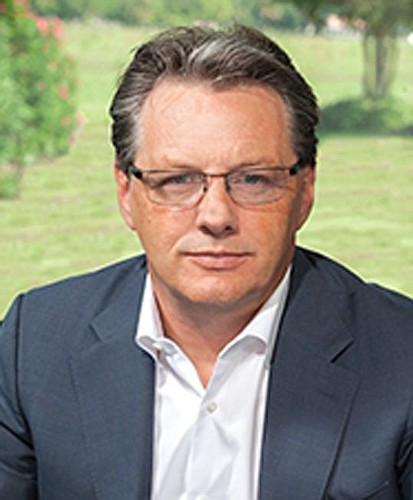
APR Energy sometimes has trouble getting its clients to pay up, but Chairman and CEO John Campion has a simple solution.
He just turns the lights off.
Jacksonville-based APR builds fast-track power plants around the world in emerging markets which may not be financially sound.
“One of the biggest problems with my business, historically, is to get paid,” Campion said Tuesday at a lunch meeting of the World Affairs Council of Jacksonville.
Fortunately for APR, its mobile plants may be the only source of power available in some of the markets, which gives the company some leverage in dealing with difficult government bureaucracies.
Speaking on the challenges of doing business in emerging markets during the meeting at The River Club Downtown, Campion told a story of how APR shut off electricity for an entire small Indonesian island for 12 days when the government wouldn’t pay its power bill. That forced the government’s hand.
“Ultimately, they paid the bill,” he said.
“We do business in risky areas but ultimately we get paid,” he said. “They just need to know you’ve got firmness of resolve.”
Campion said APR, which is headquartered in Jacksonville but does all of its business overseas, is the world’s largest provider of mobile turbine power systems.
He said APR has a “Lego-based system” of using parts that can be assembled quickly to bring power to places that need it.
“We build them in some of the most interesting parts of the world,” he said.
Some markets can be dangerous. For example, APR suffered big losses last year because of write-offs associated with a power project in Libya that had to be abandoned when the country became unsafe.
However, Campion said APR was eventually able to extract 95 percent of the equipment it had in Libya.
“Our projects – if they go wrong, we can extract 85 percent to 90 percent of our capital,” he said.
“We haven’t had equipment seizures. We’ve had equipment tied up for a while. Ultimately we get it back.”
Campion said APR works closely with the U.S. State Department and embassies to help in dealing with foreign governments.
“They do fantastic work,” he said. “They will literally get in the ditches with you.”
APR was a publicly traded company until early this year, when it was bought out by a group of private equity firms that included a firm run by former Secretary of State Madeleine Albright.
Campion said that helps give APR credibility with business and investment partners that it conducts itself properly in foreign markets.
“Madeleine Albright is not going to invest in a company that has not been properly vetted,” he said.
“It’s typically a corrupt industry in all of these markets. You have to conduct yourself in a very, very, very disciplined format,” he said.
Campion told the story of a project in Sri Lanka where someone was trying to extort a fee from APR in exchange for letting it do business. Campion said he offered to turn the power on and then talk to him again in three months.
After getting power, the man changed his tune.
“You’ve never seen such a happy terrorist in your entire life,” Campion said.
“Children who had never tasted ice cream tasted ice cream” after they had access to power, he said.
“People care more about their kids than they do about money.”
Campion said APR cultivates relationships in emerging markets by working with local citizens. He said 75 percent to 80 percent of the people hired to work at the company’s plants are local.
“Ultimately, people appreciate the right thing,” he said.
“If you make a little money doing the right thing, all the better.”